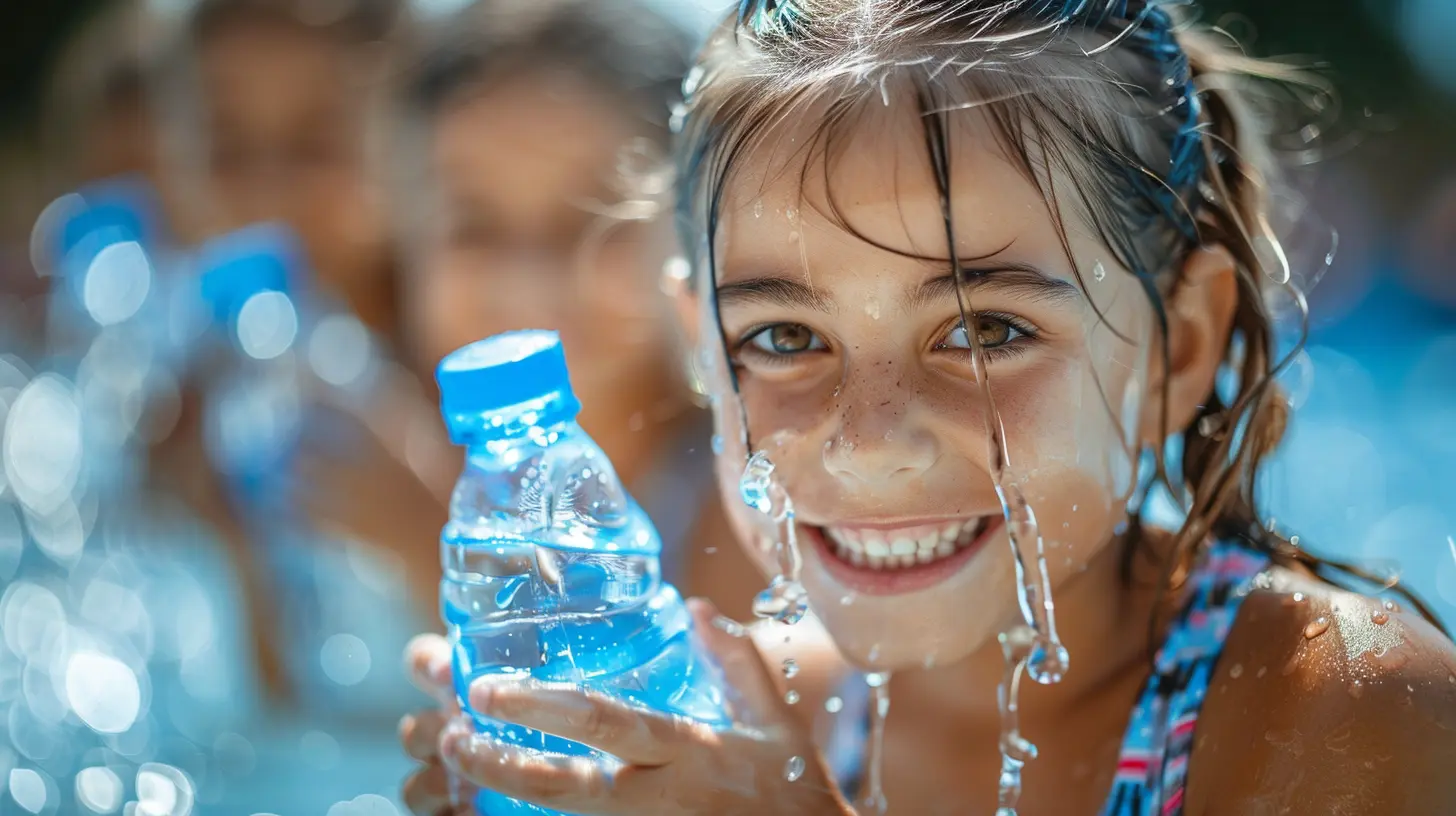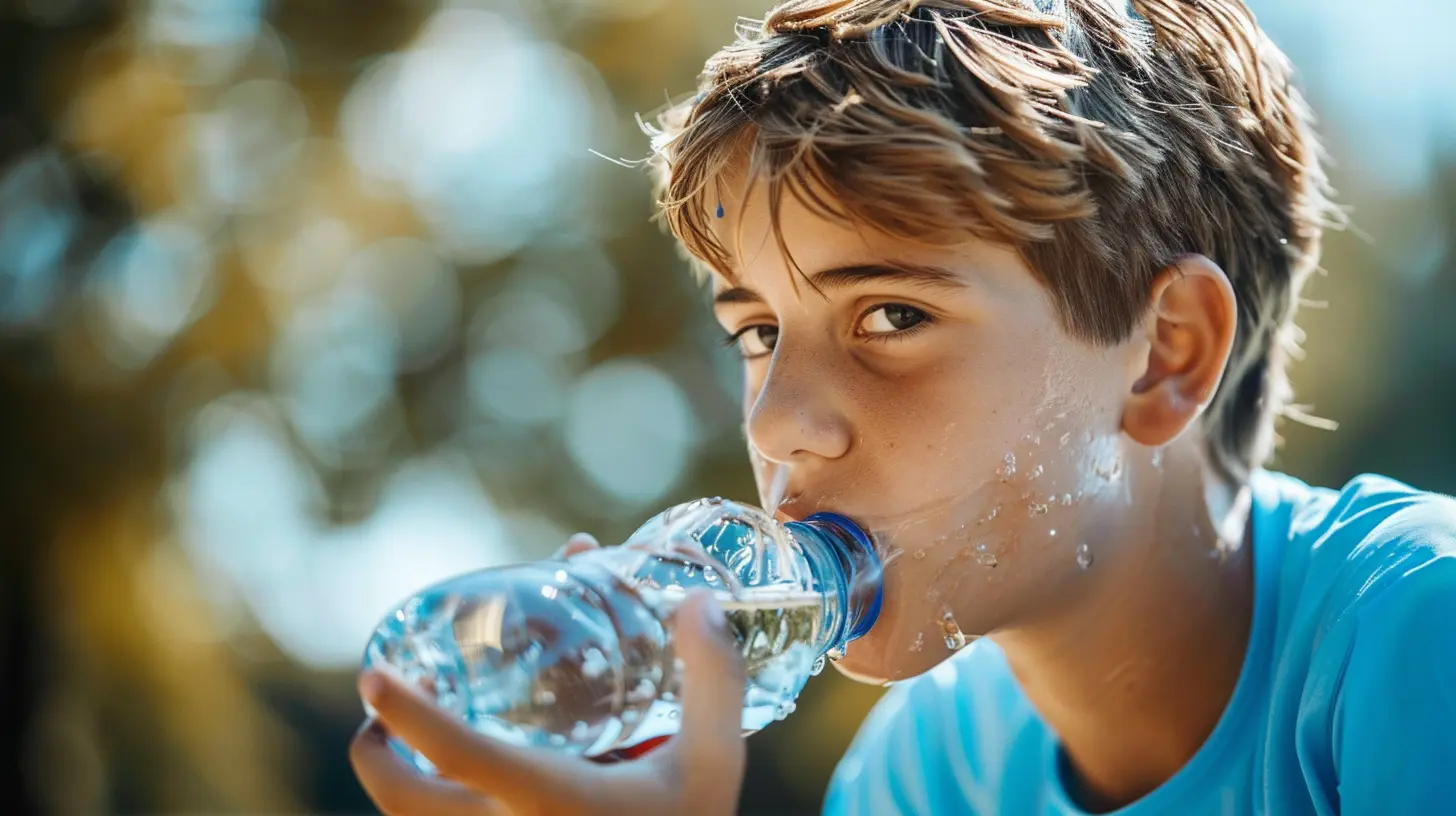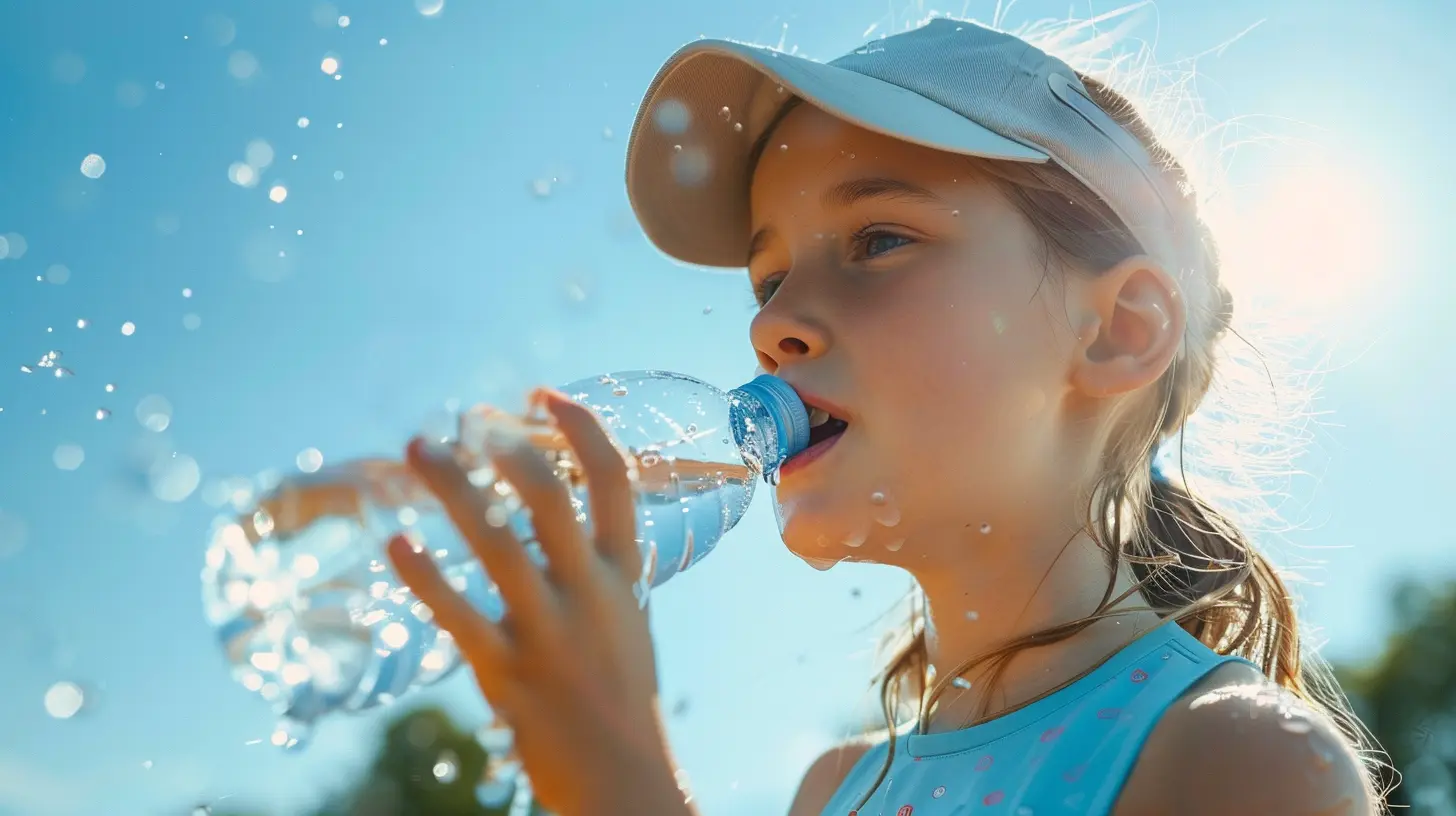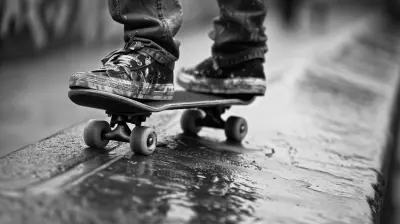The Importance of Hydration for Young Athletes
16 June 2025
Hydration is a game-changer for young athletes. Whether they're sprinting down a soccer field, dribbling on the basketball court, or pushing through a long-distance run, staying hydrated is just as crucial as practice, diet, and rest. But why exactly is hydration so important? How does it impact performance, recovery, and overall health?
In this article, we'll break down the importance of hydration for young athletes, highlighting why water should be their best friend on and off the field. 
Why Hydration Matters for Young Athletes
Sure, we all know that drinking water is essential. But for young athletes, proper hydration is the difference between peak performance and exhaustion. The body is about 60% water, and when kids are active, they lose fluids through sweat. If they don’t replace those fluids, things can quickly go downhill.Water Fuels Performance
Think of water as the fuel that keeps a young athlete’s engine running smoothly. When the body has enough fluids, it helps transport oxygen and nutrients to the muscles, enabling them to work efficiently. Hydration also plays a role in regulating body temperature, preventing heat exhaustion, and ensuring that the heart doesn't have to work overtime.Dehydration Can Wreck Their Game
Dehydration doesn’t just cause thirst. It can lead to fatigue, dizziness, muscle cramps, and sluggish reflexes—all of which are a nightmare for any athlete. Even mild dehydration (losing just 1-2% of body weight in fluids) can result in a noticeable drop in performance.The Science Behind Sweat and Hydration
Sweating is the body's built-in cooling system. But when young athletes sweat, they lose not just water but also essential electrolytes like sodium and potassium. These electrolytes are critical for muscle function, nerve signaling, and overall balance. If a young athlete doesn't replace both fluids and electrolytes, they may find themselves feeling weak, lightheaded, or even dealing with muscle spasms.
Signs of Dehydration in Young Athletes
How can you tell if a young athlete is dehydrated? Here are some telltale signs:- Thirst – By the time they feel thirsty, they’re already mildly dehydrated.
- Dark urine – Healthy hydration leads to clear or light-yellow urine. Darker urine means they need more fluids.
- Fatigue – If they’re feeling sluggish or lacking energy, dehydration could be the culprit.
- Dizziness – Lightheadedness or wooziness can indicate low fluid levels.
- Dry mouth and lips – A cottonmouth sensation is a clear sign that they should grab a water bottle.
- Headaches – Dehydration can lead to headaches, making it harder to focus.
- Muscle cramps – Without enough fluids and electrolytes, muscles can cramp up unexpectedly. 
How Much Water Do Young Athletes Need?
Hydration isn’t a one-size-fits-all recommendation. Fluid needs vary depending on factors like age, weight, activity level, and weather conditions. However, a general guideline for young athletes is:- Before exercise: Drink about 16-20 ounces of water 2-3 hours before activity.
- During exercise: Sip 7-10 ounces of water every 10-20 minutes.
- After exercise: Replenish with 16-24 ounces of water for every pound lost through sweat.
On hotter days, or when engaging in intense training, they may need even more fluids. 
Water vs. Sports Drinks: What’s Better?
With so many sports drinks on the market, it’s easy to wonder if plain water is enough. The answer? It depends.When Water Is Enough
For activities lasting under an hour, water is usually sufficient to keep young athletes adequately hydrated. It’s the simplest, purest, and most effective way to replenish lost fluids.When Sports Drinks Make Sense
For longer, high-intensity workouts (over an hour), or when athletes are sweating heavily, sports drinks can be beneficial. They contain:- Electrolytes (sodium & potassium): Helps replace what’s lost through sweat.
- Carbohydrates: Provides quick energy for extended performance.
However, parents should watch out for excessive sugar and artificial additives in some sports drinks. Not all are created equal, so it’s best to opt for lower sugar options when possible.
Tips to Keep Young Athletes Hydrated
Staying hydrated isn’t just about chugging a bottle of water right before the game. It requires a consistent effort throughout the day. Here are some tips to ensure young athletes stay hydrated and perform their best:1. Start the Day Hydrated
Athletes should begin their day with a glass of water to kickstart hydration before they even step onto the field.2. Drink Throughout the Day
Drinking small amounts of water regularly is better than gulping down large amounts at once.3. Hydrate with Meals
Eating water-rich foods like fruits (watermelon, oranges) and vegetables (cucumbers, lettuce) can boost hydration levels naturally.4. Carry a Water Bottle
Encourage young athletes to keep a reusable water bottle handy, so they can sip throughout the day.5. Recognize Sweat Loss
If their jersey is drenched, they need to replenish fluids accordingly. More sweat means more hydration is needed.6. Watch the Weather
Hot and humid conditions increase sweat loss, meaning athletes should be extra mindful of hydration.7. Listen to Their Bodies
Cramping, fatigue, or dizziness? These could all be signs that their body needs more fluids.The Role of Proper Hydration in Recovery
Hydration doesn’t just matter during the game; it plays a major role in recovery too. After intense exercise, young athletes need to restore lost fluids to help prevent soreness and fatigue. Proper hydration aids in:- Muscle recovery – Helps flush out waste products like lactic acid.
- Preventing injuries – Dehydrated muscles are more prone to cramps and strains.
- Faster healing – Water aids in circulation, helping deliver nutrients to sore muscles.
For optimal recovery, pairing hydration with a balanced post-workout snack (like a banana with water or a hydration-rich smoothie) can work wonders.
Final Thoughts
Hydration is often overlooked but is one of the most critical aspects of sports performance for young athletes. Without proper fluids, their endurance, focus, and strength can all take a hit. Teaching young athletes the importance of drinking water consistently—not just when they feel thirsty—sets them up for success both on and off the field.So, the next time your young athlete heads out for practice or a big game, remind them: Water is their ultimate teammate!
all images in this post were generated using AI tools
Category:
Youth SportsAuthor:

Uziel Franco
Discussion
rate this article
2 comments
Echo Jenkins
Hydration is crucial for young athletes, as it impacts performance and recovery. Encouraging proper water intake not only boosts physical abilities but also fosters lifelong healthy habits. Let's prioritize hydration!
June 21, 2025 at 11:53 AM

Uziel Franco
Thank you for highlighting the vital role of hydration in young athletes' performance and health! Your emphasis on fostering healthy habits is key to their success.
Caden McCarthy
Great article! Hydration is key for young athletes not just for peak performance, but also for overall health and well-being. Encouraging proper hydration habits early can set the foundation for a lifetime of athletic success and healthy living. Keep inspiring!
June 21, 2025 at 4:58 AM

Uziel Franco
Thank you for your thoughtful comment! I'm glad you found the article valuable. Hydration truly plays a crucial role in both performance and overall health. Let's keep spreading the awareness!


